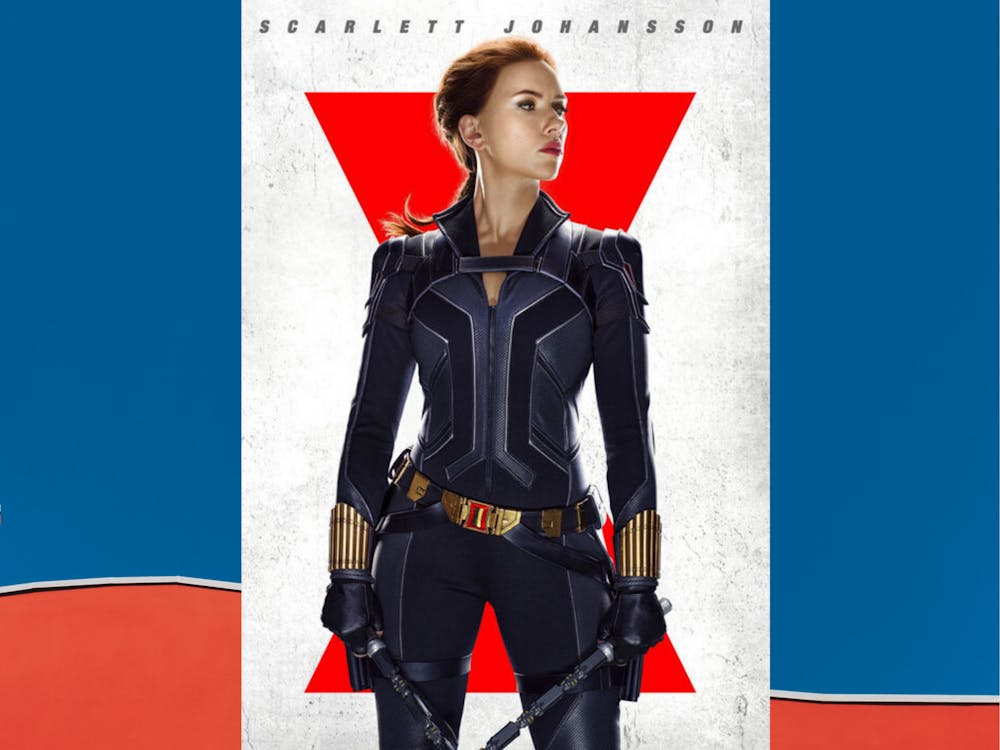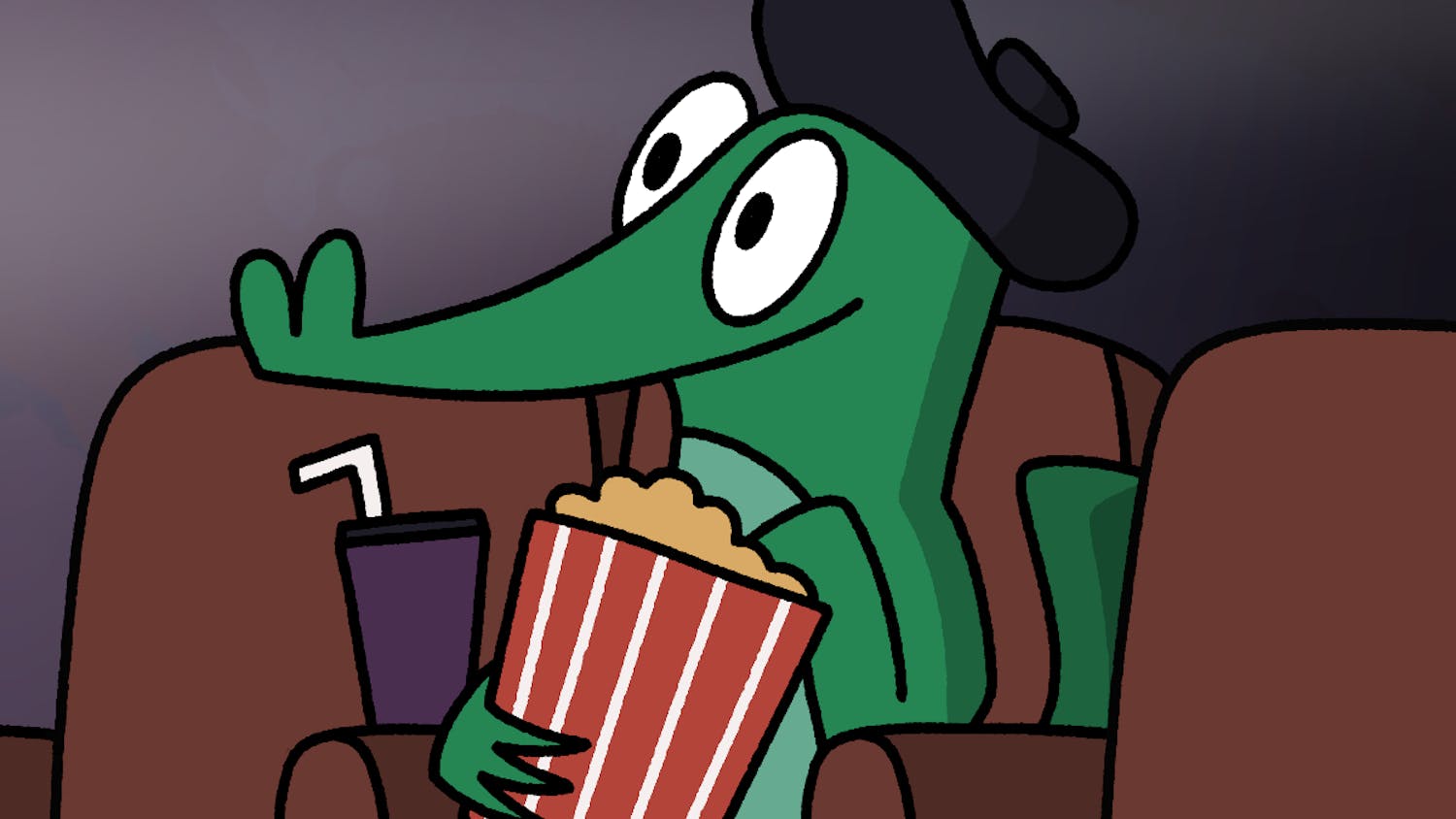The red-headed and overly-sexualized spy Natasha Romanoff, played by Scarlett Johansson, was introduced to the Marvel Cinematic Universe (MCU) more than 10 years ago in “Iron Man 2.” After nine Marvel movies, the only female Avenger in the original six gets her own film.
The star-studded film with Florence Pugh, David Harbour, Rachel Weisz and Scarlett Johansson packs girl power, comedy, and heartfelt moments with enough action to last a lifetime. After a year of delays induced by the COVID-19 pandemic, fans finally get to watch how the Black Widow's journey began.
The film, released July 9 in theaters and on Disney+, introduces a typical midwest family during 1995 with a grunge aesthetic.
Directed by Cate Shortland, the film opens with a young Natasha with ginger hair and blue tips as she plays with her younger sister Yelena (Florence Pugh) in Ohio.
With Russian super-soldier Alexei (David Harbour) and scientist mastermind Melina (Rachel Weisz) playing the girls’ fake parents, the family makes a classic superhero escape from authorities to the coast of Cuba. Alexei returns to the role of the Red Guardian, the Soviet Union's response to Captain America, and the two girls, Natasha and Yelena, are sent to the infamous red room to establish themselves as assassin "widows."
The film gently touches over the notorious red room, a boot camp snatching young women and training them to be assassins. Other characters like the Winter Soldier trained in this room, making it infamous in the comics. The room serves as a metaphor for human trafficking and specifically the sex trafficking of young girls.
Aside from the mentions of forced sterilizations, the film fails to show much of the rigorous and cruel training the girls endured, providing little context to newer fans of the Marvel franchise. There’s no bridge between the girls we met at the beginning of the film and the grown up trained assassins we meet later on. In failing to show the cruelty, Black Widow’s most crucial and shaping years are erased from her backstory.
The film picks up speed and importance when we find out that the red room, which to Natasha's knowledge she ended, is still operational.
Natasha and Yelena, who found an antidote for the mind-controlling tactics of Dreykov (Ray Winstone), are burdened with the herculean task of bringing down the red room with the help of their make-believe parents Alexei and Melina. While they aren't blood-related, the fake sisters have one thing in common– the need for redemption from their pasts.
Although the theme weighs heavy with undertones of human trafficking and abuse of women, the film strategically uses Habour's comedic nature and Pugh's insane ability to steal the spotlight to provide comedic relief to the audience. The Red Guardian, now sporting a heavier and worn down look, reunites with Natasha and Yelena as they attempt to stop the main villain, Dreykov, from mind-controlling more "widow" assassins.
The film's abundance of explosions, superhero flips and one-on-one fights keep the audience's attention, but its depth came from the heartbreaking scenes of Yelena and Natasha realizing how messed up their upbringings were. While in a weird family reunion with Melina and Alexei, Yelena's heartfelt speech about how real everything felt to her when she was young stings viewers' hearts.
“Black Widow” feels disconnected from the MCU, almost as a side plot to the Avenger's events. It feels underwhelming for Black Widow's long-awaited solo movie debut, considering the events that transpired in “Avengers Endgame.” The film allowed Black Widow's character to remain the stone-cold reserved spy that lacked depth and personality, leaving the writing at fault.
Marvel bridged its relationship with Black Widow, and it failed to solidify the only woman in the original Avengers lineup with a standout film. Instead, the film acts like an additional puzzle piece wedged between Captain America: “Civil War” and “Avengers: Infinity War.”
Despite that, the film succeeds in setting up Yelena for a more prominent role and spreading the message of free will and female empowerment.
The end of the movie highlights Yelena and Natasha’s relationship as sisters and invokes a couple of tears as the two bring down the red room. The post-credit scene jump cuts to the current time of the MCU with Yelena and her dog Fancy Longbottom, a callback to Natasha’s alias earlier in the film. A familiar face from the Falcon and the Winter Soldier approaches Yelena with an interesting proposition for vengeance, setting the Black Widow successor up for a larger role in the MCU.
Overall, the film gives context and excites Marvel fans for the beginning of Phase Four of the MCU and is worth watching for those returning to movie theaters everywhere.
Rate: 7/10 The movie has comedy, heartfelt moments and a whooping badassery to the likeness of a bond film but is underwhelming compared to other Avenger solo movies.
Contact Melissa at mhernandez@alligator.org. Follow her on twitter @mhernandezdlc.

Melissa Hernandez de la Cruz is a fourth-year journalism major at the University of Florida. She loves to travel, create photography, enjoy new cultures, and is a fellow history junkie. Apart from being a citizen of the world, she also shares birthdays with legendary artists Bruce Lee, Jimi Hendrix, and Bill Nye.




